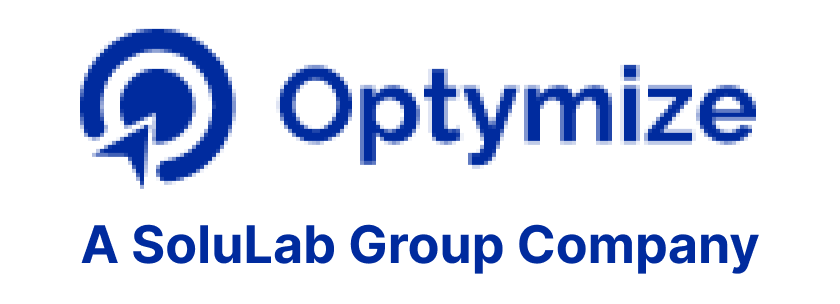Recruiting candidates is essential to maximize your output and complete software projects at a faster rate. Companies employ a variety of hiring techniques to help them find the best pool of talented developers around the globe. During the hiring process, candidates are routinely tested and are expected to possess robust technical skills, excellent soft skills, strong problem solving and analytical skills, and the list goes on.
Employers, on the other hand, are kept low-key as they hire millions of developers, but many of these employers knowingly or unknowingly conduct poor or false recruitment, which harms their reputation and wastes candidates’ time.
If you are an employer who engages in similar unethical behavior, we strongly advise you to stop and start implementing the standards that will improve your company’s reputation to gain access to the best pool of talented developers. If you don’t know where to begin, our detailed guide on ethical recruitment practices will help out and will refine the dynamics of your hiring process with the right standards.
What is Ethical Recruitment Practices
Ethical recruitment practices are a set of standards that follow the core values of the corporate world to define how recruitment procedures should be carried out.
Ethical recruitment examples,
- i) Evaluating applicants in an impartial manner without any bias.
- ii) Interacting with candidates in a formal manner.
- iii) Periodically informing candidates of their candidacy.
- iv) Completing each phase of the recruitment process on the scheduled date and time.
Why Are Ethics Important in Recruitment?
Ethics are the rules and morals that are used to perform structured and organized operations. Additionally, it determines whether a process adheres to the company’s core values, distinguishing between right and wrong ways to conduct business operations appropriately.
Though ethical recruitment practices are seen as the most crucial factors in the corporate world, they are equally applied in every other relationship daily to maintain transparency, trust, and similar objectives. These help build strong bonds between two or multiple parties for collaborative operations. Similarly, in the corporate world, employers and employees need to follow certain morals to enhance their development practices.
An ethical recruitment policy is another important yet essential parameter for any corporate company because it helps distinguish and onboard talented candidates. These elite candidates must be hired to continuously improve the performance of any IT firm and always stay one step ahead of competitors by providing new technologies.
Ethical recruitment practices bind and merge the candidates with an organization to carry out effective operations. Having said that, candidates are the workforce, and if they are not treated well, then chances are they will not show any interest in joining your company. As a result, they will opt for your competitors, who will gladly accept these talents to outperform your operations. And without fresh recruits and an agile workforce, your company’s performance will decline and you will lose in the market in no time.
Furthermore, ethical recruitment practices enhance and streamline recruitment, which gives candidates immense satisfaction at every stage. Hence, the initial impression of your firm may be very good and they might take an interest in joining your company. This doesn’t stop here, as people talk. If your procedures are full of ethics and professionalism, then candidates may spread good words about your company and, as a result, you will gain even more popularity.
Indeed, clients only approach those companies who have proven their ethical operations, from achieving victorious heights to having a good company culture and treating every employee equally. This popularity of your firm will again attract clients to polish their image in the market, so it will create a win-win situation for both.
Why Is Ethical Recruitment Important?
Ethical recruitment practices elevates your image, popularity, and reputation in the market. Above all, because of the standardized process, it attracts candidates to join your company and spreads good words. Apart from this, the following key aspects will help you understand why it is essential to recruit candidates.
1. Identity and Reputation
Identity and reputation are the foremost priorities for any company, and if they fail to maintain a good identity or reputation in the market, surely they will suffer and hardly survive in the long run. Even clients prefer reputed organizations to scale their business, polish their reputation further and keep stronger ties. Unethical hiring or recruiting puts companies at greater risk of losing their reputation as candidates won’t enjoy the process and may spread the bad words that are heard everywhere.
2. Good Hires and Bad Hires
We all know the difference between good and bad hires. However, if your company employs unethical recruitment practices and uses poor systematic procedures and interviewing techniques, there’s a good chance you’ll make bad hires and lose some of the top candidates who could help advance your development strategies.
3. Impact on Customer Relations
Your company’s operations depend on a number of key factors, including customer relations. If you sacrifice this, chances are your company will shut down. As we discussed, unethical hiring advances bad hires. These bad hires could result in the development of poor solutions that your clients won’t accept, harming your relationship.
What Are The Best Ethical Recruitment Practices?
You may wonder, “OK,” we have to make sure that our company survives in the long run, gaining huge appreciation and reputation, but what are the best hiring or ethical recruitment practices? Don’t worry because this guide has all the answers to your queries. Let’s start off with best ethical practices.
1. A Proper Job Description
The first step of ethical recruitment practices begins with a well formatted and well detailed job description, which should contain all the necessary details regarding the position and the required tech skills, experience, and other expertise. Avoid any other unnecessary details, such as a huge salary disclosure, which you won’t provide, and any other marketing strategies that attract candidates.
2. Streamlined Recruitment Steps
The core of ethical recruitment practices are the steps and stages of your recruitment strategy. Your recruitment steps should be well defined and well structured, similar to a detailed job description, such as technical assessments, the time and date they will be held, venue, and details of technical assessments.
In addition to this, details of other procedures such as telephonic interviews, group discussions, and interview processes should be provided before the assessment to make candidates well aware of every step and provide time for further preparations.
3. Proper Communication
Communication is important to share crucial thoughts about recruitment steps. Hence, proper communication is one of the prime factors of ethical recruitment practices. The recruitment team should use proper communication channels such as emails to notify candidates regarding their candidacy.
Moreover, the team should interact with candidates in a formal manner without using any harsh or silly words that reflect negative behavior. While interacting, do not ask for any private details that violate the “code of ethics for hiring practices”, such as religion, cast, or racial background.
4. Candidates’ Privacy
To get a position in your company, candidates share their crucial details that a company and recruiting team should keep private. Candidates’ privacy should be the first priority as they are the future resources that will power your organization, making it another important factor of ethical recruitment practices. Any information leak on any candidate may result in negative consequences such as threatening, blackmailing and other. For this reason, the recruiting team should keep details of every candidate’s confidentiality.
5. Notifying Updates
As a recruiter, you should always notify a candidate of his candidacy. Whenever a candidate is qualified or disqualified for any further stage, he should be notified by email. This way, a candidate can get his candidacy details on time and avoid any waiting.
Moreover, whenever a candidate is selected for a position, the recruiting team should mail all the other details regarding his candidature, such as an offer letter, probation period details , company policies, salary disclosure, etc.
How to Implement a Fair and Ethical Hiring Process
Great, now that you have realized you have broken the recruiting and hiring processes, it’s time to improve ethical recruitment practices and elevate your business standards. For this, you need to start with some of the prerequisites that will help you identify the flaws in your culture or in the hiring process and accordingly create a plan to tackle them.
1. Work on Core Values
To implement ethical recruitment practices, understand the standards you want to set in your hiring or recruitment process, you must first work on your core values and culture. For this, Identify what your company’s goals and visions are, and what your company really wants to provide. Based on these terms, you can investigate what requirements you may have. And once you comprehend these ideas, structuring your hiring process will be easy.
2. Identify Flaws in Hiring or Recruiting Process
After you know what you need to implement, start identifying the flaws that will not align with your standards, such as lack of communication, preferring candidates who do not meet requirements, confusing and frustrating recruitment stages, bad recruiters, etc. Consequently,make a plan to tackle each and every issue by easing out of the hiring process in small parts.
3. Ask Candidates
One of the best ways to improve and polish your ethical recruitment practices is to get feedback from candidates. Ask every candidate to review your recruitment process. Take suggestions from candidates on where you need to improve, such as frustrating and time consuming stages. Getting their opinion will also give the candidate satisfaction that their opinion matters, further enhancing your reputation.
After you get all their suggestions and reviews, work on those aspects and stages, such as reducing the long hours for each stage. Afterwards, plan a meeting with your recruitment team to discuss various aspects of hiring, communicating, and other terms to find a possible solution.
4. Apply Solution
Once you come up with a robust plan and solution, start applying the strategies step by step. This way, you won’t make the process more tedious and you’ll still improve and streamline the hiring process. If something goes wrong, take a step back, analyze the impact, and accordingly design another plan to work on and solve the issue. Again, apply the enhanced plan to standardize your recruitment procedures.
Remember that eliminating these problems and pointless steps will take time, but you can adapt to ethical recruitment practices by being consistent and updating your tactics in response to the issues you encounter.
Conclusion
The company’s reputation, the atmosphere at work, and customer relations are all destroyed by unethical behavior, which also results in the closure of the business. On the contrary, ethical recruitment practices are the essence of creating and shaping every organization into a reputable giant. Therefore, every organization should use these standards and common practices to boost their development and production goals, polish and enhance their reputation, and attract a pool of talented candidates. Additionally, it will strengthen their ties with other businesses and clients, it should come as no surprise that positive publicity for the organizations will raise the firm’s profile.







